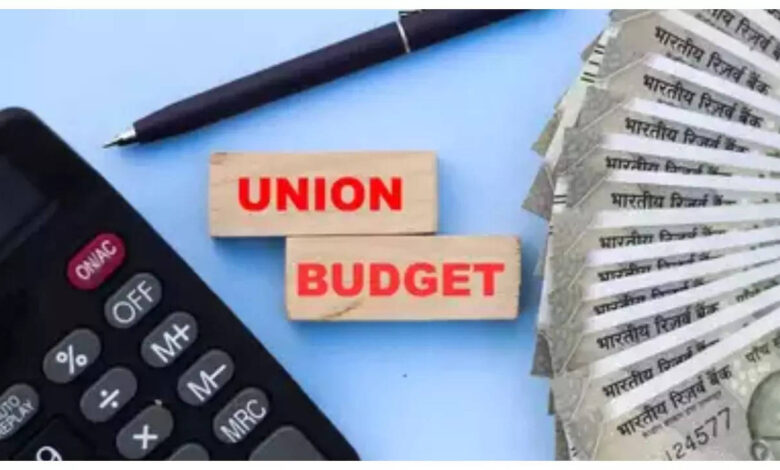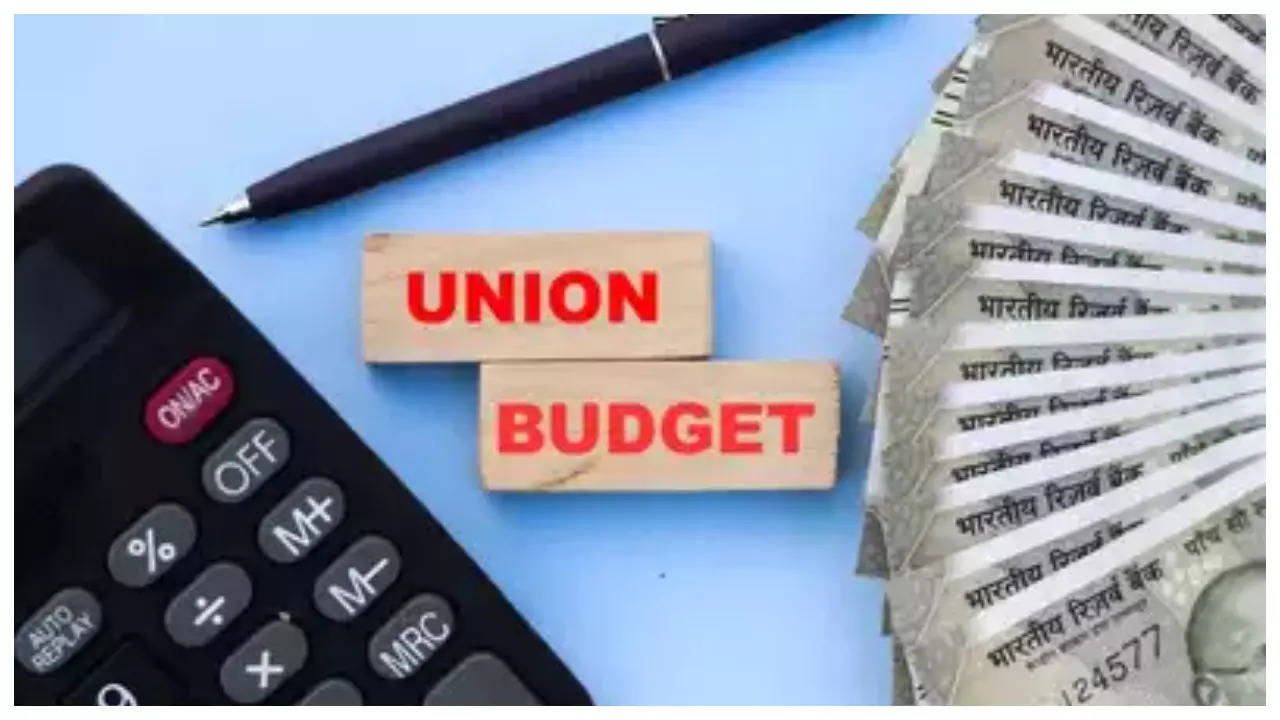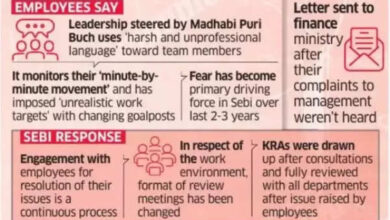
In its first budget since the recent elections, the Indian government has emphasized policy continuity while addressing pressing issues such as climate change. The Budget 2024-25, presented by Finance Minister Nirmala Sitharaman, prioritizes climate and sustainability.
The total budget for this fiscal year is set at 48.21 lakh crore rupees, with total receipts (excluding borrowings) projected at 32.07 lakh crore rupees.Sitharaman’s budget speech highlighted plans to strengthen adaptation and manage loss and damage from extreme climate events.
Despite some gaps in details on carbon pricing and nuclear power, the budget focuses on building capacity for climate change mitigation, adaptation, and addressing loss and damage.
Key Budget Highlights:
Mitigation Efforts:
Critical Mineral Mission: Aims to enhance domestic production, recycling, and overseas acquisition of critical minerals necessary for strategic sectors.
PM Surya Ghar Muft Bijli Yojana: Allocates 6,250 crore rupees for installing rooftop solar plants for 1 crore households, providing free electricity up to 300 units per month.
Pumped Storage Projects: Promotes electricity storage to manage the variability of renewable energy.
Nuclear Energy Development: Plans to partner with the private sector to develop Bharat Small Reactors and Bharat Small Modular Reactors, along with R&D for new nuclear technologies.
Advanced Ultra Super Critical Thermal Power Plants: A joint venture between NTPC and BHEL to set up an 800 MW commercial plant using AUSC technology.
Support for Traditional Industries: Financial aid for energy audits and cleaner energy transitions in 60 clusters of traditional micro and small industries.
Carbon Markets and Emission Targets: A roadmap for transitioning ‘hard to abate’ industries to emission targets from energy efficiency targets.
Adaptation Initiatives:
Climate-Resilient Agriculture: Release of 109 high-yielding, climate-resilient crop varieties and support for 1 crore farmers adopting natural farming practices.
Digital Public Infrastructure for Agriculture: Implementation of a digital crop survey for Kharif in 400 districts and integration of 6 crore farmers and their lands into registries.
Taxonomy for Climate Finance: Development of a taxonomy to enhance capital availability for climate adaptation and mitigation.
Loss and Damage Measures:
Financial Support for Flood Management and Reconstruction: Provisions for states affected by floods, such as Bihar, Assam, Himachal Pradesh, Uttarakhand, and Sikkim.
Energy Sector Focus:
Energy Transition Policy Document: A policy document to balance employment, growth, and environmental sustainability.
PM Surya Ghar Muft Bijli Yojana: Over 1.28 crore registrations and 14 lakh applications received.
Pumped Storage Policy: For electricity storage and integration of renewable energy.
National Green Hydrogen Mission: Budget allocation increased to Rs 600 crore.
Customs Duty Adjustments: Exemptions for capital goods used in solar panel manufacturing and withdrawal of exemptions for solar glass and tinned copper interconnect.
Electric Vehicles and Automotive Sector:
Critical Mineral Mission: Exemption of 25 critical minerals from customs duties.
FAME Scheme: Budget estimate for 2024-25 set at Rs 2671.33 crore.
PLI Scheme for Automobiles and Auto Components: Budget estimate of Rs 3500 crore.
PLI Scheme for Advanced Chemistry Cell Battery Storage: Budget allocation of Rs 250 crore.
Expert Reactions:
Aarti Khosla, Director, Climate Trends: Praised the budget for its significant allocations towards climate-resilient agriculture and renewable energy initiatives but noted the lack of timelines for important announcements on climate finance mechanisms.
Dr. Arunabha Ghosh, CEO, Council on Energy, Environment and Water (CEEW): Highlighted the budget’s comprehensive approach to clean energy, sustainable agriculture, and critical minerals, emphasizing the importance of innovative financing for sustainability.
Suranjali Tandon, Associate Professor, National Institute of Public Finance and Policy: Welcomed the budget’s focus on establishing a carbon market and taxonomy for climate finance as essential steps towards achieving Net Zero by 2070.
Rishabh Jain, Senior Programme Lead, CEEW: Commended the announcement of the Critical Mineral Mission, highlighting its importance for India’s energy transition and strategic sectors.
Dr. Anjal Prakash, Associate Professor and Research Director, Bharti Institute of Public Policy at ISB: Appreciated the budget’s focus on climate finance taxonomy, climate-resilient agriculture, and digital public infrastructure for farming.
Neshwin Rodrigues, Electricity Policy Analyst – India, Ember: Noted the budget’s alignment with interim measures and significant investments in renewable energy, while stressing the need to reduce reliance on thermal power.
Girish Tanti, Chairman, Global Wind Energy Council, India: Applauded India’s leadership in combating climate change and fostering renewable energy investments.
The budget 2024-25 underscores India’s commitment to sustainable development, with a comprehensive approach to energy transition, climate adaptation, and mitigation. The world’s fifth-largest economy aims to balance growth, employment, and environmental sustainability, setting a precedent for other nations.
The total budget for this fiscal year is set at 48.21 lakh crore rupees, with total receipts (excluding borrowings) projected at 32.07 lakh crore rupees.Sitharaman’s budget speech highlighted plans to strengthen adaptation and manage loss and damage from extreme climate events.
Despite some gaps in details on carbon pricing and nuclear power, the budget focuses on building capacity for climate change mitigation, adaptation, and addressing loss and damage.
Key Budget Highlights:
Mitigation Efforts:
Critical Mineral Mission: Aims to enhance domestic production, recycling, and overseas acquisition of critical minerals necessary for strategic sectors.
PM Surya Ghar Muft Bijli Yojana: Allocates 6,250 crore rupees for installing rooftop solar plants for 1 crore households, providing free electricity up to 300 units per month.
Pumped Storage Projects: Promotes electricity storage to manage the variability of renewable energy.
Nuclear Energy Development: Plans to partner with the private sector to develop Bharat Small Reactors and Bharat Small Modular Reactors, along with R&D for new nuclear technologies.
Advanced Ultra Super Critical Thermal Power Plants: A joint venture between NTPC and BHEL to set up an 800 MW commercial plant using AUSC technology.
Support for Traditional Industries: Financial aid for energy audits and cleaner energy transitions in 60 clusters of traditional micro and small industries.
Carbon Markets and Emission Targets: A roadmap for transitioning ‘hard to abate’ industries to emission targets from energy efficiency targets.
Adaptation Initiatives:
Climate-Resilient Agriculture: Release of 109 high-yielding, climate-resilient crop varieties and support for 1 crore farmers adopting natural farming practices.
Digital Public Infrastructure for Agriculture: Implementation of a digital crop survey for Kharif in 400 districts and integration of 6 crore farmers and their lands into registries.
Taxonomy for Climate Finance: Development of a taxonomy to enhance capital availability for climate adaptation and mitigation.
Loss and Damage Measures:
Financial Support for Flood Management and Reconstruction: Provisions for states affected by floods, such as Bihar, Assam, Himachal Pradesh, Uttarakhand, and Sikkim.
Energy Sector Focus:
Energy Transition Policy Document: A policy document to balance employment, growth, and environmental sustainability.
PM Surya Ghar Muft Bijli Yojana: Over 1.28 crore registrations and 14 lakh applications received.
Pumped Storage Policy: For electricity storage and integration of renewable energy.
National Green Hydrogen Mission: Budget allocation increased to Rs 600 crore.
Customs Duty Adjustments: Exemptions for capital goods used in solar panel manufacturing and withdrawal of exemptions for solar glass and tinned copper interconnect.
Electric Vehicles and Automotive Sector:
Critical Mineral Mission: Exemption of 25 critical minerals from customs duties.
FAME Scheme: Budget estimate for 2024-25 set at Rs 2671.33 crore.
PLI Scheme for Automobiles and Auto Components: Budget estimate of Rs 3500 crore.
PLI Scheme for Advanced Chemistry Cell Battery Storage: Budget allocation of Rs 250 crore.
Expert Reactions:
Aarti Khosla, Director, Climate Trends: Praised the budget for its significant allocations towards climate-resilient agriculture and renewable energy initiatives but noted the lack of timelines for important announcements on climate finance mechanisms.
Dr. Arunabha Ghosh, CEO, Council on Energy, Environment and Water (CEEW): Highlighted the budget’s comprehensive approach to clean energy, sustainable agriculture, and critical minerals, emphasizing the importance of innovative financing for sustainability.
Suranjali Tandon, Associate Professor, National Institute of Public Finance and Policy: Welcomed the budget’s focus on establishing a carbon market and taxonomy for climate finance as essential steps towards achieving Net Zero by 2070.
Rishabh Jain, Senior Programme Lead, CEEW: Commended the announcement of the Critical Mineral Mission, highlighting its importance for India’s energy transition and strategic sectors.
Dr. Anjal Prakash, Associate Professor and Research Director, Bharti Institute of Public Policy at ISB: Appreciated the budget’s focus on climate finance taxonomy, climate-resilient agriculture, and digital public infrastructure for farming.
Neshwin Rodrigues, Electricity Policy Analyst – India, Ember: Noted the budget’s alignment with interim measures and significant investments in renewable energy, while stressing the need to reduce reliance on thermal power.
Girish Tanti, Chairman, Global Wind Energy Council, India: Applauded India’s leadership in combating climate change and fostering renewable energy investments.
The budget 2024-25 underscores India’s commitment to sustainable development, with a comprehensive approach to energy transition, climate adaptation, and mitigation. The world’s fifth-largest economy aims to balance growth, employment, and environmental sustainability, setting a precedent for other nations.





